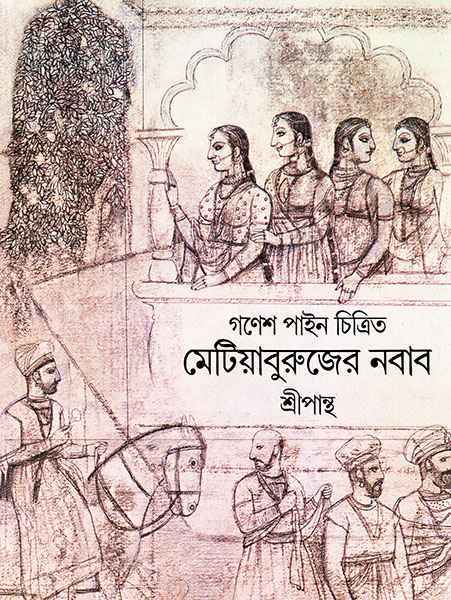Metiya Burujer Nawab
Metiya Burujer Nawab is backordered and will ship as soon as it is back in stock.
Couldn't load pickup availability
Genuine Products Guarantee
Genuine Products Guarantee
We guarantee 100% genuine products, and if proven otherwise, we will compensate you with 10 times the product's cost.
Delivery and Shipping
Delivery and Shipping
Products are generally ready for dispatch within 1 day and typically reach you in 3 to 5 days.
- Author: শ্রীপান্থ (Sripanth)
- Publisher: Ananda Publishers
- Language: Bengali
- Edition: Hardcover
- ISBN: 9788170663003
- Pages: 132
- Weight: 438 gm
Book Description:
মেটিয়াবুরুজের নবাব (Metiya Burujer Nawab) traces the poignant history of Nawab Wajid Ali Shah, the last Nawab of Oudh (Awadh), whose life took a dramatic turn due to the British conspiracy that led to his exile to Kolkata. The year is 1856, and Wajid Ali Shah, after losing his kingdom to the British, arrives in Kolkata, where he finds a new residence in Metiabruz.
The narrative explores the emotional and cultural aspects of Wajid Ali Shah's life in exile, revealing how he brought the richness of Lucknow's culture to Kolkata. Metiabruz transformed into a second Lucknow, with its mosques, gardens, and artistic gatherings. The Nawab’s passion for music, poetry, dance, and painting filled the air with the melodies of khayal, thumri, and ghazal, reminiscent of the cultural life of Lucknow.
The book does not just recount the story of Wajid Ali Shah’s exile; it paints a vivid picture of 19th-century Kolkata, where the clash between British rule and the rising popular revolt comes alive. Amidst this backdrop, the figure of Begum Hazrat Mahal, the fiery and courageous wife of the Nawab, stands tall. The narrative is enriched by Ganesh Pain’s artistic illustrations, adding another layer of depth to the historical recounting.
Through historical accuracy and evocative storytelling, Metiya Burujer Nawab brings to life a forgotten chapter of Kolkata’s history, shedding light on the art, culture, and resilience of Wajid Ali Shah. It’s not just a political biography but also a testament to the Nawab’s enduring legacy in shaping the cultural landscape of Kolkata, even in exile.





